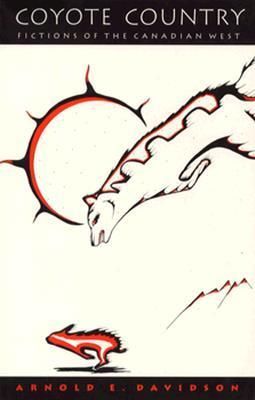
Coyote Country Fictions of the Canadian West
For most North Americans—Canadians as well as Americans—the term "Western" evokes images of the frontier, brave sheriffs and ruthless outlaws, good cowboys and bad Indians. As Arnold E. Davidson shows in this groundbreaking study, a number of Canada's most interesting and experimental Western writers parody, reverse, or otherwise defuse the paraphernalia of the classic U.S. Western. Lacking both a real and imagined frontier—Canadian settlers rode trains into the new territory, already policed by Mounties—the writers of Canadian Westerns were set a different task from their American counterparts and were subsequently freed to create some of the most complex and engrossing fiction yet produced in Canada. Davidson details the evolution of the U.S. and Canadian Western forms, tracing the divergence between the two as Canadian writers responded to their unique historical circumstances by reinventing the West as well as the Western and establishing a new literary landscape where author and reader could work out new possibilities of being. Surveying a range of texts by Canada's most innovative writers, with special attention to women writers and Native stories of Coyote, he provides close readings of novels by Howard O'Hagan, Sheila Watson, Robert Kroetsch, Aritha van Herk, Anne Cameron, Peter Such, W. O. Mitchell, Beatrice Culleton, and Thomas King. A unique study, Coyote Country offers at one and the same time a theory of Canadian Western fiction, a history of crosscultural paradigms of the West as manifested in novels, and an intensive reading of some of Canada's best literature.